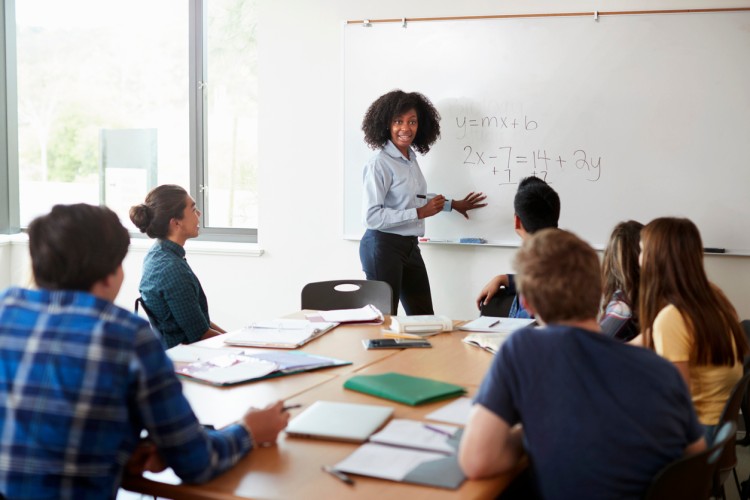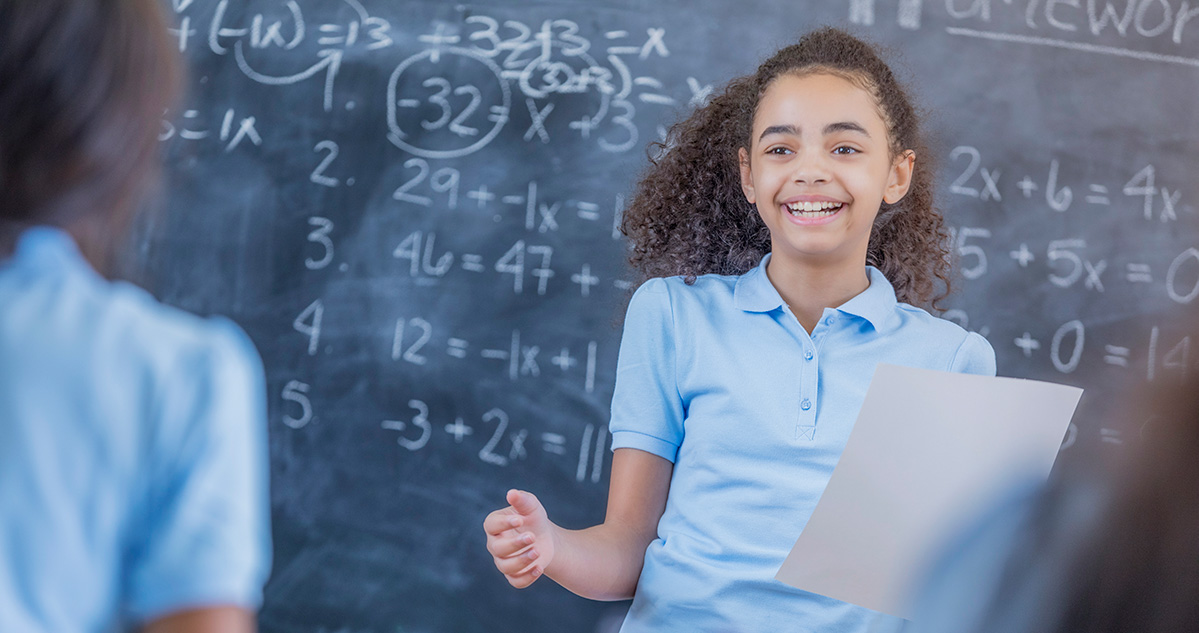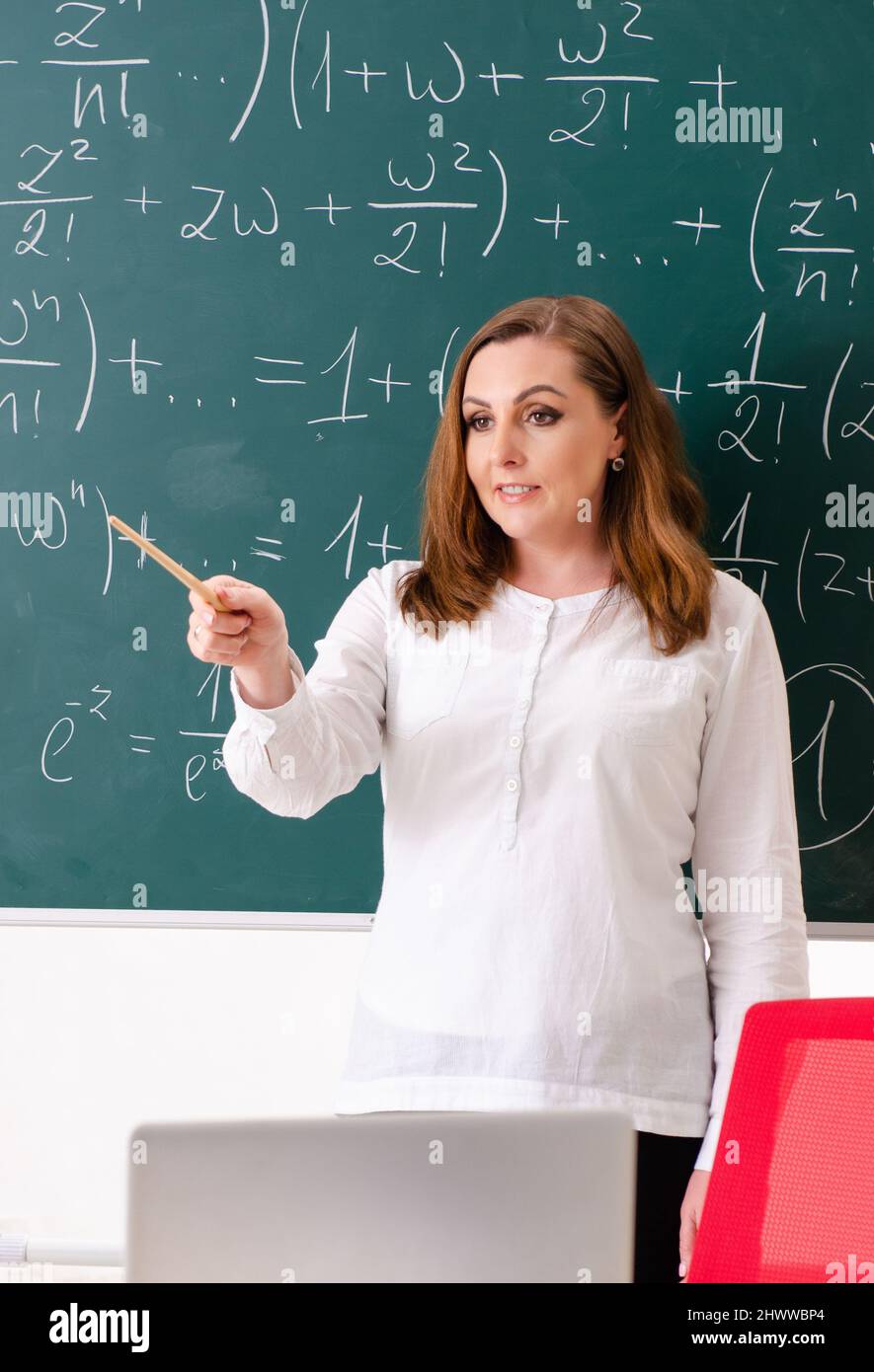Training programs designed specifically for experienced math teachers
Wiki Article
Achieving Venture Quality: Comprehending Market Standards and Strategic Leadership for Mathematics Professors
Attaining enterprise excellence in mathematics education necessitates a cautious assessment of industry standards and the duty of tactical leadership. Mathematics professors should understand how these criteria shape educational program and mentor methods. In addition, effective leadership can drive cooperation and expert development amongst educators. This complex strategy questions regarding the useful effects for students' career preparedness. What techniques can faculty take on to connect the gap between education and market demands?The Importance of Sector Standards in Mathematics Education And Learning
In the domain name of mathematics education, adhering to market standards is vital for ensuring that programs successfully prepare pupils for real-world applications. Industry requirements give a framework that straightens instructional outcomes with the skills needed in various professions. By integrating these criteria, mathematics programs can boost their relevance and rigor, thereby improving trainee interaction and discovering end results.
Strategic Leadership: Specifying Functions and Duties
Efficient tactical management within mathematics faculty calls for a clear interpretation of obligations and duties to ensure perfect operating and placement with institutional goals. Leadership frameworks have to be established to mark jobs amongst professor, managers, and assistance personnel, guaranteeing that each private comprehends their payments toward cumulative purposes. Faculty leaders must cultivate an environment that promotes cooperation and responsibility, allowing staff member to involve efficiently in educational program growth and assessment processes.In addition, critical leaders have to focus on ongoing expert development, making sure that professors members are fully equipped to meet the progressing demands of maths education. This includes not only lining up individual roles with institutional top priorities however additionally promoting a culture of continuous enhancement and advancement. By plainly specifying roles, tactical leadership can boost interaction, enhance decision-making procedures, and ultimately add to a much more reliable and cohesive mathematics faculty, positioned to satisfy the difficulties of contemporary education.
Best Practices for Enhancing Mentor and Discovering
In the quest of improving mentor and learning, math professors can take advantage of ingenious teaching techniques that involve pupils successfully. Carrying out collaborative learning settings cultivates teamwork and essential reasoning abilities among students. These best techniques are necessary for creating a dynamic educational experience that advertises much deeper understanding of mathematical concepts.Innovative Teaching Techniques
While traditional approaches of mentor have their area, ingenious training strategies are important for enhancing engagement and understanding amongst maths faculty and their trainees. Methods such as flipped classrooms and problem-based discovering encourage energetic involvement, allowing pupils to take possession of their understanding. Including technology, such as interactive simulations and on-line collaboration devices, additionally sustains diverse discovering designs and fosters critical reasoning. In addition, making use of real-world applications in lessons helps pupils connect mathematical concepts to day-to-day life, making the topic a lot more relevant and attractive. Professors participants that accept these methods can develop a vibrant learning environment that not just enhances comprehension but also inspires a long-lasting interest for maths. Embracing ingenious methods eventually leads to greater levels of student accomplishment.
Collaborative Knowing Environments
Structure on the cutting-edge training methods formerly reviewed, collective understanding atmospheres play an essential function in boosting the academic experience for mathematics professors and their trainees. These atmospheres motivate energetic engagement and promote a sense of community, permitting pupils to gain from one an additional and establish vital thinking skills. Finest techniques consist of organized team job, peer tutoring, and project-based knowing, which promote cooperation and shared obligation for learning outcomes. Faculty needs to facilitate conversations and give support while allowing trainees to explore principles jointly. In addition, integrating innovation can boost collaboration by supplying systems for communication and resource sharing. Ultimately, collaborative knowing environments equip students to take ownership of their education and learning and grow a much deeper understanding of mathematical concepts with synergy and interaction.
Straightening Professors Goals With Institutional Objectives
Aligning professors objectives with institutional goals is crucial for fostering a cohesive educational setting that enhances both teaching effectiveness and trainee success. When professors members understand and embrace the wider mission of their institution, their mentor approaches can be tailored to support these purposes. This alignment assures that professors are not only satisfying departmental assumptions however additionally contributing to the overarching goals of the institution, such as improving pupil involvement and visit this web-site scholastic performance.To attain this alignment, regular communication between professors and management is necessary. Workshops and collective meetings can promote conversations on institutional concerns and how faculty can integrate these into their educational program. Furthermore, performance assessments can be created to mirror these lined up purposes, motivating professors to innovate in their mentor methods. Inevitably, when professors objectives reverberate with institutional goals, they grow a more unified technique to education, benefiting both teachers and students alike.
Growing a Culture of Continuous Enhancement
Cultivating a culture of continual renovation within mathematics faculty is crucial for boosting both educational high quality and trainee results. This includes creating an environment where professor are motivated to on a regular basis evaluate their training practices and seek responses. Expert development possibilities must be readily available, permitting teachers to discover brand-new pedagogical methods and integrate evidence-based techniques right into their curriculum.Moreover, partnership amongst faculty is vital; sharing experiences and understandings can lead to ingenious services and improved teaching methods. Organizations should carry out systematic evaluation procedures, allowing professors to assess their performance and identify areas for development.
Finally, acknowledging and commemorating achievements, regardless of just how small, strengthens the commitment to improvement. By embedding continual renovation into the faculty culture, mathematics departments can enhance their total performance, inevitably benefiting both her response teachers and pupils in the quest of scholastic excellence.
Innovative Methods to Mathematics Program Development
Many ingenious methods can change mathematics program development, making it a lot more responsive to the progressing instructional landscape. experienced math teachers. One effective approach includes incorporating technology, such as on-line understanding systems and interactive software, to enhance pupil involvement and access. This change enables a blended knowing environment, providing to varied learning designsAdditionally, embracing a project-based understanding framework urges collective analytic and real-world application of mathematical concepts. Faculty can additionally stress interdisciplinary links, highlighting just how mathematics intersects with areas like scientific research, art, and engineering, promoting a much more all natural instructional experience.
Normal responses from trainees and market stakeholders can direct educational program changes, guaranteeing relevance and roughness. Additionally, providing professional development chances for faculty can promote innovative training methods and keep teachers notified of the most up to date patterns. Through these strategies, math programs can grow a dynamic knowing ambience that prepares trainees for future difficulties and careers.
Regularly Asked Questions
How Can Professors Determine the Effect of Market Standards on Pupil Outcomes?
Professors can determine the impact of industry requirements on student results by analyzing assessment results, tracking work rates, soliciting company comments, and performing longitudinal researches to compare student performance before and after carrying out the standards.What Resources Are Available for Professional Advancement in Mathematics Education And Learning?
Numerous sources for expert growth in maths education and learning consist of online programs, workshops, webinars, professional organizations, seminars, and peer cooperation chances. These platforms help with skill improvement, cutting-edge mentor approaches, and reliable combination of technology into mathematics instruction.Exactly How Do Market Standards Vary Across Various Geographical Regions?
Industry standards differ considerably throughout geographical areas because of variables like governmental regulations, academic top priorities, and cultural influences. These discrepancies can influence educational program development, mentor approaches, and the execution of assessment techniques in maths education and learning.What Duty Does Technology Play in Achieving Enterprise Quality in Mathematics?
Modern technology improves business quality in maths by simplifying processes, enabling data analysis, promoting partnership, and supplying accessibility to resources. It encourages educators and pupils alike, promoting innovative training techniques and enhancing total instructional outcomes in the field.How Can Professors Effectively Collaborate With Industry Partners?

In the pursuit of improving mentor and discovering, math faculty can profit from innovative mentor strategies that engage students efficiently. While traditional techniques of mentor have their area, ingenious training approaches are necessary for boosting interaction and understanding amongst mathematics professors and their pupils. Structure on the ingenious mentor approaches previously discussed, collective discovering atmospheres play a pivotal function in improving the educational experience for maths professors and their trainees. Aligning professors objectives with institutional objectives is important for promoting a cohesive instructional setting that boosts both teaching efficiency and pupil success. Cultivating a society of continual renovation within maths faculty is necessary for improving you could look here both educational top quality and student end results.
Report this wiki page